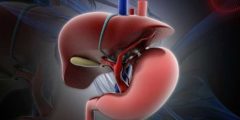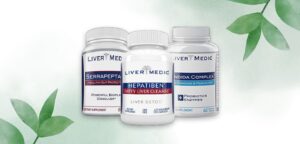
Often the question comes up, “can you reverse fatty liver disease?” Studies have shown this can be accomplished, but it does depend on the remedy and how far along the disease has progressed. Below are some important ingredients to detox this very important organ.
Milk thistle has been in use for well over 2,000 years and the effects of milk thistle have been know as far back as the Romans. It was used to treat most any toxin in the body, even snakebites. Though it was mostly used for liver ailments.
Today scientific research confirms milk thistle’s benefits come from its ability to protect against cell damage particularly in the liver, gallbladder and bile ducts. But few are aware that silybin is the active compound in milk thistle bestowing these benefits and by taking silybin over milk thistle, bioavailability is improved 10-fold.
Silybin is the active compound in Milk Thistle and has a 10x higher absorption rate.
For instance, it would require 1000mg of milk thistle to equal the benefits found in 100mg of Silybin. The bioavailability is enhanced further in the presence of phosphatidylcholine. It’s important to point out there is no study showing this water-soluble ingredient to be dangerous at high doses. When choosing a supplement to treat fatty liver or other liver ailments, coupling these ingredients should be a major consideration. This is the reason why we formulated our Hepatiben with phosphatidylcholine and Silybin at 100mg and not milk thistle.
Because the liver is involved in over 500 chemical reactions, it is further beneficial to have proper amino acids like one would find in MSM, Turmeric and NAC. Any liver product with all these ingredients would be considered a complete formulation enabling maximum liver detoxification as is the case with Hepatiben. We have done the work for our customers, so they don’t need to buy six or seven different supplements making it easier on your wallet and ease of taking them.
Releated Blog – Can Supplements Assist in Managing Fatty Liver Disease?
conclusion
Choosing a supplement with all these complimentary ingredients, as is the case in Hepatiben, gives you much greater speed and efficacy in reversing fatty liver then you will find in other products in the marketplace.
available for purchase
references
- https://www.cancer.gov
- https://www.liverfoundation.org
- https://www.nleducation.co.uk
Additional articles

Harnessing the Power of Fitness in Your Journey Toward Addiction Recovery
Written by: Susan Treadway of Rehab Holistics Embarking on the path to addiction recovery unveils a myriad of challenges and opportunities. One potent yet often underestimated ally in this journey is fitness. Through the transformative power of physical activity, you

Is it Possible to Reverse Fatty Liver with Natural Remedies?
Is it possible to reverse fatty liver through natural remedies? This is a common question, especially as fatty liver disease becomes increasingly prevalent. The liver, one of the most vital organs in the body, plays a key role in detoxifying,
7 Best Liver Detox Remedies
Are you looking to revitalize your liver health but overwhelmed by the myriad of options available? Wondering if liver detox remedies are really effective, especially when you are already taking supplements? Let’s delve into the world of best liver detoxification
Do Liver Detox Supplements Help Fatty Liver?
Have you ever wondered if liver detox supplements can truly make a difference for fatty liver? With the rise in health consciousness, many turn to supplements for various health concerns. But do they really work when it comes to combating

Which is the Best Liver Supplement for Fatty Liver?
Are you experiencing fatigue, abdominal discomfort, or unexplained weight gain? These could be signs of a fatty liver, a condition affecting millions worldwide. With lifestyles often characterized by poor dietary choices and sedentary habits, the prevalence of fatty liver disease

How Can I Detox my Liver in 7 Days?
Have you ever felt like your body needs a reset? Perhaps you are experiencing low energy levels, bloating, or just a general sense of malaise. If so, your liver might be trying to tell you something. Could a 7-day liver